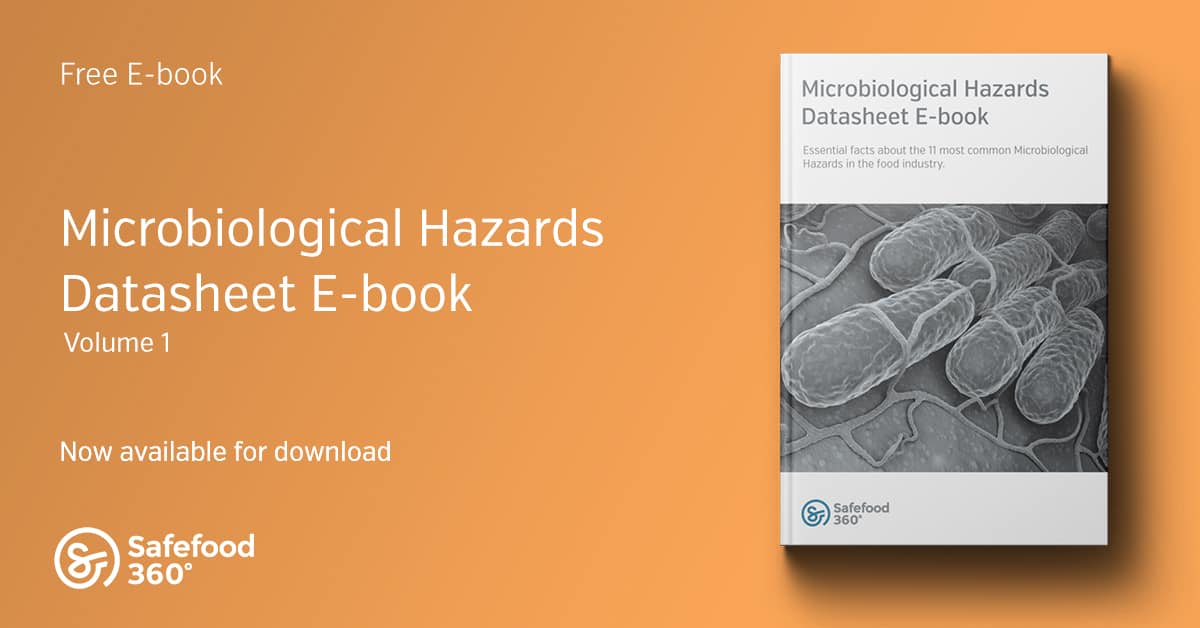October 2021 Food Safety News and Industry Round-up
USA Update
FDA host E-Commerce summit in the New Era of Smarter Food Safety
Earlier in the month the FDA hosted a summit geared towards e-commerce as part of the continued roll-out of the New Era of Smarter Food Safety.
Taking place over three days, the summit was geared towards aiding the agency in enhancing its understanding of how e-commerce Business to Consumer models function for both human and animal foods.
The summit was identified as a key goal in the New Era Blueprint to help address potential food safety vulnerabilities, particularly those at the last leg of the delivery process.
Learnings from the summit will be combined with Federal Register comments to determine what future actions may be required to help continue keeping customers safe.
More information & event materials
New Era of Smarter Food Safety Blueprint
New members appointed to USDA food safety advisory committee
The USDA appointed 13 new members and 17 returning members to the National Advisory Committee on Microbiological Criteria for Foods (NACMCF).
The Committee will discuss enhancing Salmonella control in poultry products and Cyclospora cayetanensis contamination, with the goal of supporting improved production and processing.
Members are chosen based on their expertise in microbiology, risk assessment, epidemiology, public health and food science.
The committee reports provide critical information and scientific advice to federal food safety agencies.
Register for next NACMCF meeting
USDA to change salmonella poultry approach
The USDA has announced new steps it will take to reduce the number of illnesses attributed to salmonella cases in poultry plants.
While the agency currently tests for the presence of salmonella on poultry at processing plants, the proposed testing initiatives would also account for the quantity of bacteria present and for certain strains that can cause the most illness.
The changes comes as a result of acknowledging that while there has been a reduction in the level of salmonella detection at poultry plants, this has not transferred into a similar reduction in the number of foodborne illness cases.
Source of US salmonella outbreak identified
The source of a salmonella outbreak that sickened more than 650 people across 37 US states has now been identified.
A full recall notice has now been put in place for the affected products which have caused at least 129 hospitalizations but 0 deaths.

Europe Update
EU members find ethylene oxide recall ‘disproportionate’
Recall measures imposed by the EU to protect consumers against ethylene-oxide have been called ‘disproportionate’ by several European countries.
Multiple country representatives have claimed that the EU Commission failed to provide them with legal statements to enforce the recall quickly enough, with others believing that it will lead to food waste.
The Commission has acknowledged that while food waste is unfortunate, that no compromise to food safety can be given.
Beginning from January 2022, updated rules will include ethylene oxide controls for several specific products and the Commission has agreed to wider discussions in cases where the amount of ethylene oxide may be diluted in composite products, as well as a wider assessment on whether the EU approach to risk management should be adjusted.
Cryptosporidium rates rising in Europe
The latest figures published by the European Centre for Disease Prevention and Control reveal that Cryptosporidium rates are continuing to rise in Europe as of 2018.
It revealed that 20 countries reported more than 14,0000 cryptosporidiosis cases, with Germany, Netherlands, Spain and the United Kingdom accounting for more more than 75% of total cases, with the UK alone accounting for 41% of infections.
The highest age group affected were 0-4 and women aged 15-44.
Download Cryptosporidium datasheet
European Commission’s changes to Listeria regulation challenged
According to the Chilled Food Association (CFA), new European Commission proposals to change Listeria regulation threatens food safety and risks creating waste by challenging set shelf life.
The CFA warns changes will impact UK exports to the EU, as well as giving way to increasing waste due to the reduced shelf life of products.
CFA director, General Karin Goodburn, also claims that there is no obvious public health reason for the benefits, and the system currently in place has proved effective for the past 16 years.
EU Commission issues warning to the Czech Republic on official controls
The Czech Republic has received a warning from the European Commission for failing to comply with its rules on official controls.
This ruling came following an investigation that the Czech Republic was applying pre-notification checks on the arrival of foodstuffs from other EU member countries.
The country now has two months following the date of ruling to take corrective measures to comply with EU regulation otherwise the case may escalate to the EU Court of Justice.
UK Update
Concerns raised after Natasha’s Law goes into effect
Natasha’s Law – a new amendment requiring food businesses to provide a full ingredient list and allergen labeling on all pre-packaged food meant for direct sale – went into effect October 1st amongst confusion from several businesses.
The law affects businesses in England, Wales, and Northern Ireland, however, a report from GS1 claims there have been several concerns raised with four in 10 businesses stating they had never heard of the law and eight in 10 saying they were unprepared.
The results of this report come despite 90% of respondents saying they were aware of the change in regulations and had received information for it.
There have been several reasons suggested by industry for the confusion including not just the cost of change, but also access to information to help inform ingredient and allergen management.
Future trade between UK & China unclear amidst beef ban
China’s latest ban on imports of cattle under 30 months of age from the UK took place on September 29th following a case of bovine spongiform encephalopathy (BSE or ‘mad cow’ disease) allowing for long-term impacts on future trade between the countries.
Despite the confirmation of the BSE case, Phil Hadley, the AHDB international market development director, claims the detection proves the stringent food safety controls in place.
The British Horseracing Authority declares all racehorses must be signed out of human food chain
Effective January 1st, 2022, the British Horseracing Authority’s declaration that no horse would be accepted unless it is declared it is not intended for human consumption will go into effect.
While it applies to British horse racing only, the international community is considering adopting the same amendment into their legislation.
Vibrio found in UK prawns pose a low risk to human health
Scientific researchers have noted that while half of prawns sampled in the UK were contaminated with Vibrio, the strains of bacteria do not cause severe disease in humans.
After collecting more than 200 samples from May 2018 to April 2019, research suggested prawns were not a major source of vibriosis cases in the UK, however, researchers called for better surveillance in the future to protect the public against an increased risk of contamination that may arise driven by climate change.
Global Update
Feedback on the WHO’s draft strategy for 2022-2030 revealed
Having sought and reviewed feedback from almost 100 stakeholder responses on its draft 2022-2030 food safety strategy, the WHO has said there is a shared sentiment welcoming the setting of global indicators but debate remains over targets and a tiered approach to reflect different regional and national starting points.
The review comes the formation of a Technical Advisory Group on food safety with experts from the WHO’s six regions tasked with refreshing the existing 2002 strategy.
With the FAO’s food safety strategy set to be released in 2022, respondents also mentioned that it will be important to show interaction and alignment while remaining considerate of the uptake of technological solutions in low resource environments.










Very informative
Need further information about Natasha laws in UK